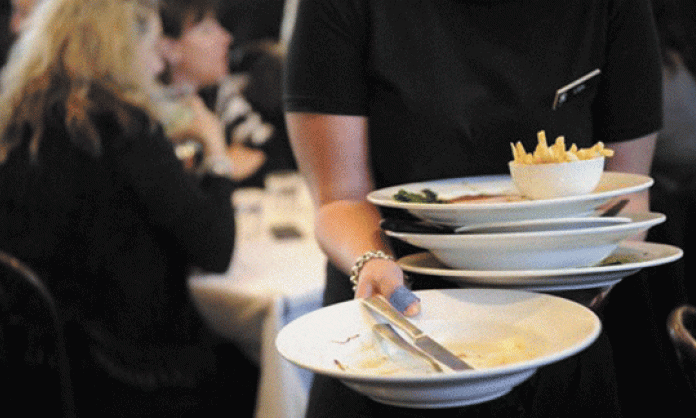Up to 40,000 hospitality workers, who are already among the lowest paid workers in the country, have been handed a wage cut by the Fair Work Commission. Its 14 May ruling will carve 25 percent off the Sunday penalty loading for casual workers in the bottom two pay grades of the restaurant industry award.
The decision is a gift to restaurant and cafe bosses, who will pocket an extra $112 million every year. Exercising haste that is not generally evident when awarding wage increases, the Commission ordered that the pay cut take effect in a matter of weeks. (By contrast, a pay rise granted to Victorian community sector workers in 2012 is being phased in over eight years).
The Commission and Restaurant and Catering Australia (RCA, the industry association that argued the bosses’ case) were happy to agree that the pay drop will disproportionately impact women. Women make up the majority of restaurant and cafe staff and are overwhelmingly employed on a casual basis.
In fact, the RCA produced a trail of bosses who gave evidence that their mostly female staff “like to work nights and weekends because their husbands can look after the children”. Despite the fact that they make up less than 30 percent of the workforce, much was also made of the apparent predominance of full-time students in the industry. Again, various employer witnesses were able to assure the Commission that “university students enjoy the weekend shifts” and need not be compensated for working them.
The union representing hospitality workers, United Voice, argued that the workers affected by the decision experience frequent disruptions to their family and leisure time because of unpredictable working hours. They have no right to a say over their rostered hours.
Sarah-Lou, a cafe worker of four years, agrees: “Owners and managers want to know that you’re constantly available to work during opening hours, with the expectation that should you be called, you’ll drop everything and come running. If you say no, you’ll most likely find you have one less shift on the roster for the next week.
“It’s a farce that most cafes even advertise full time hours. What it means is they have a pool of desperate employees waiting to be called upon at any time.”
Bosses and industry groups are now celebrating the fact that from 1 July their “pool of desperate employees” will cost them less. The Australian Chamber of Commerce and Industry reported that it was “thrilled” with the decision to slash the wages of low-paid workers.
RCA is clear that its wage cutting push doesn’t stop here. It says that the “historic” decision will spur it to argue for more. One of RCA’s star witnesses, pro-business industrial relations academic Phil Lewis, says that the Commission’s finding is “quite remarkable” and that employers should seize the chance to cut penalty rates in other industries. His grubby advice: “If you were going to do something, you should do it now.”
With the Commission signalling that the ruling class is ready to take action against penalty rates, the union movement needs to quickly come up with something better than a courtroom strategy to win this battle.











